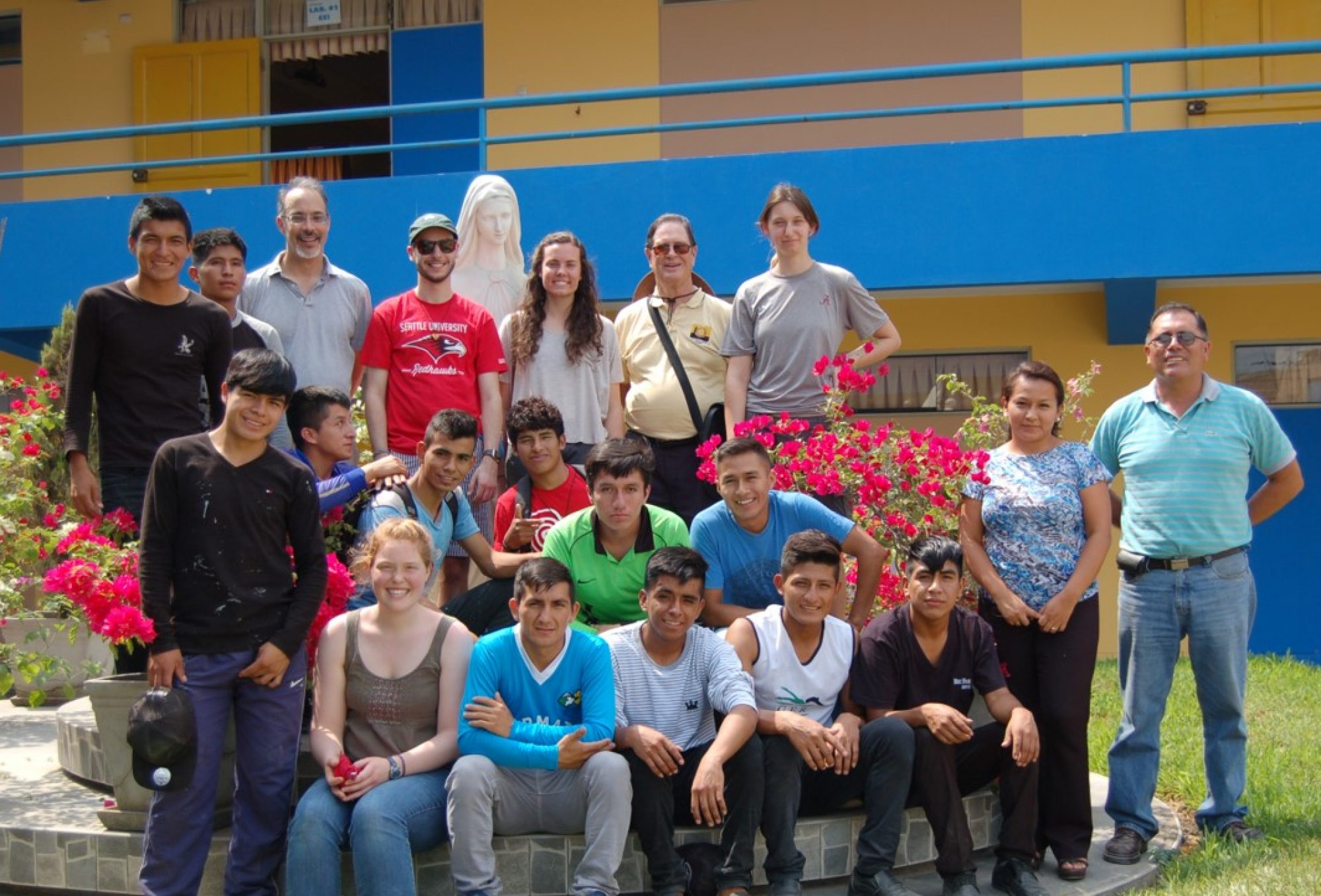In August 2011, civil and environmental engineering students Aimee Corn (BSCE ’12), Alan Pani (BSCE ’13) and Lisa Stenberg (BSCE ’12) traveled to Mae Nam Khun, Thailand to build a rainwater catchment system. The trip was led by CEE department faculty and staff members Dr. Phillip Thompson and Fred Jiencke. The project involved collaboration between the MNK community, the Seattle University student chapters of World Water Partners and Engineers Without Borders, the non-profit organization Faith International and the Chiang Mai University Department of Civil and Environmental Engineering.
The catchment system consists of gutters and storage tanks that were added to the dormitory that we completed in 2006 and to a recently constructed dining hall that was funded in part by Seattle’s Emerald City Rotary Club. During the school year, the dormitory houses 45 children ages 8-14 whose families live throughout the mountains of northern Thailand. The water source for the dormitory is piped stormwater that is collected on a hill that is approximately 300-ft above the village. Previous water quality tests have shown that the water is highly contaminated with Coliform bacteria. In addition, the taps have run dry as village residents who live closer to the source consume water during peak usage periods in the morning and early evening. The 9600-L storage system will provide additional water during these peak periods, and it will provide a significantly cleaner source of water for bathing and clothes washing.
The team also collected water samples from the drinking water treatment systems that SU students had installed at the dormitory (2008) and at the local medical clinic (2010). The SU and CMU students tested the samples and found that the treatment systems were removing 99 percent of all Coliform bacteria. The CMU students will continue to perform follow-up testing in November as part of a monitoring program that has been on-going since August 2008.
Funding for the project was provided by Seattle University’s Endowed Mission Fund, Global Grants Initiative and College of Science and Engineering.

